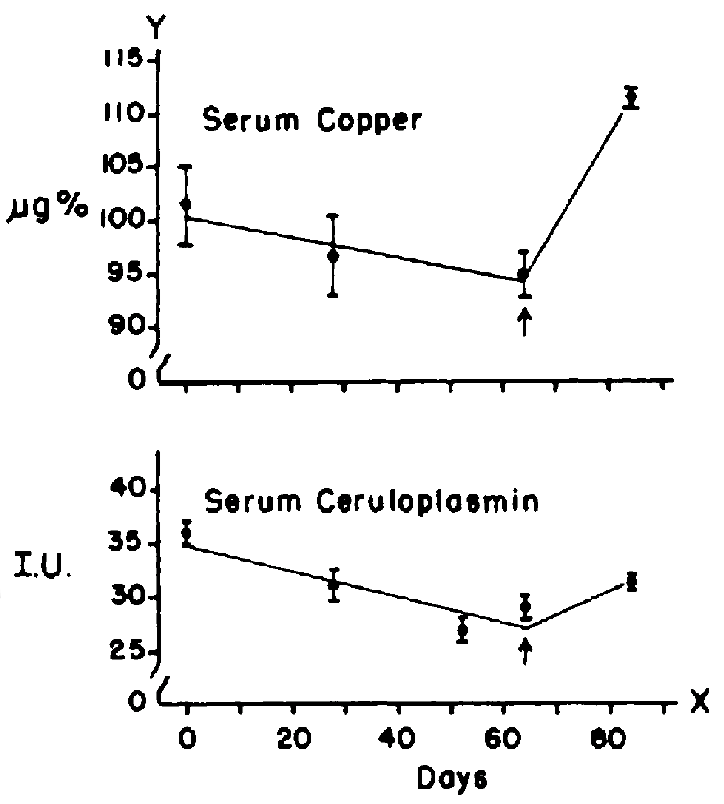Supplementation with vitamins and minerals can have useful health benefits. In some cases, essential elements can be absent from the diet and supplements are a useful adjunct to support proper growth and development. However, supplementation is a double edged sword because vitamins and minerals interact. For example, it is well known that the divalent cations such as calcium and magnesium compete for absorption and transport and can influence each others physiological activity within the body. High intakes of one in the absence of the other can therefore lead to imbalance. Vitamin C interacts with a number of minerals in human nutrition. This can be beneficial in the case of increasing iron absorption for example. However, vitamin C may decrease the availability of other trace minerals, particularly copper, even in the presence of adequate levels of dietary copper. Animal studies for example show that high intakes of vitamin C can induce copper deficiencies in chicks, rats, guinea pigs and rabbits.
But what about humans? Studies have investigated the effects of vitamin C supplementation on the copper status of healthy humans. For example, in one study1 subjects consumed a self selected diet and supplemented with 500 mg of ascorbic acid with each meal to provide a total of 1500 mg per day for 64 days. Blood samples of the subjects were taken at baseline (before supplementation began) and at days 28, 52 and 64 to allow measurements of the copper status. A further blood sample was taken 20 days after the end of the vitamin C supplementation period. The vitamin C supplements caused a reduction in the activity of serum ceruloplasmin, and a similar trend was seen for serum copper (although this was not statistically significant). Following the cessation of vitamin C supplementation, serum copper and ceruloplasmin levels started to rise again. These result suggest that as in animals, high intakes of vitamin C within nutritionally normal ranges are antagonistic to serum copper levels in healthy humans.

Figure 1. The effects of vitamin C on copper status in healthy humans. Supplements of 1500 mg per day were taken for the first 60 days.
Dr Robert Barrington’s Nutritional Recommendation: Supplementation with vitamin C in animals reduced the concentrations of copper in the blood. Although this is widely reported it is unclear if this causes long term health consequences in those with adequate intakes of copper. The effects of vitamin C on copper nicely illustrate the potential problems with supplementation of single nutrients in isolation. Care should always be taken when selecting supplements and where possible, nutrients should always be obtained from food. If supplements are used then a broad spectrum of supplements in a balanced ratio should be used as single isolated nutrients can cause detrimental physiological imbalances.
RdB
